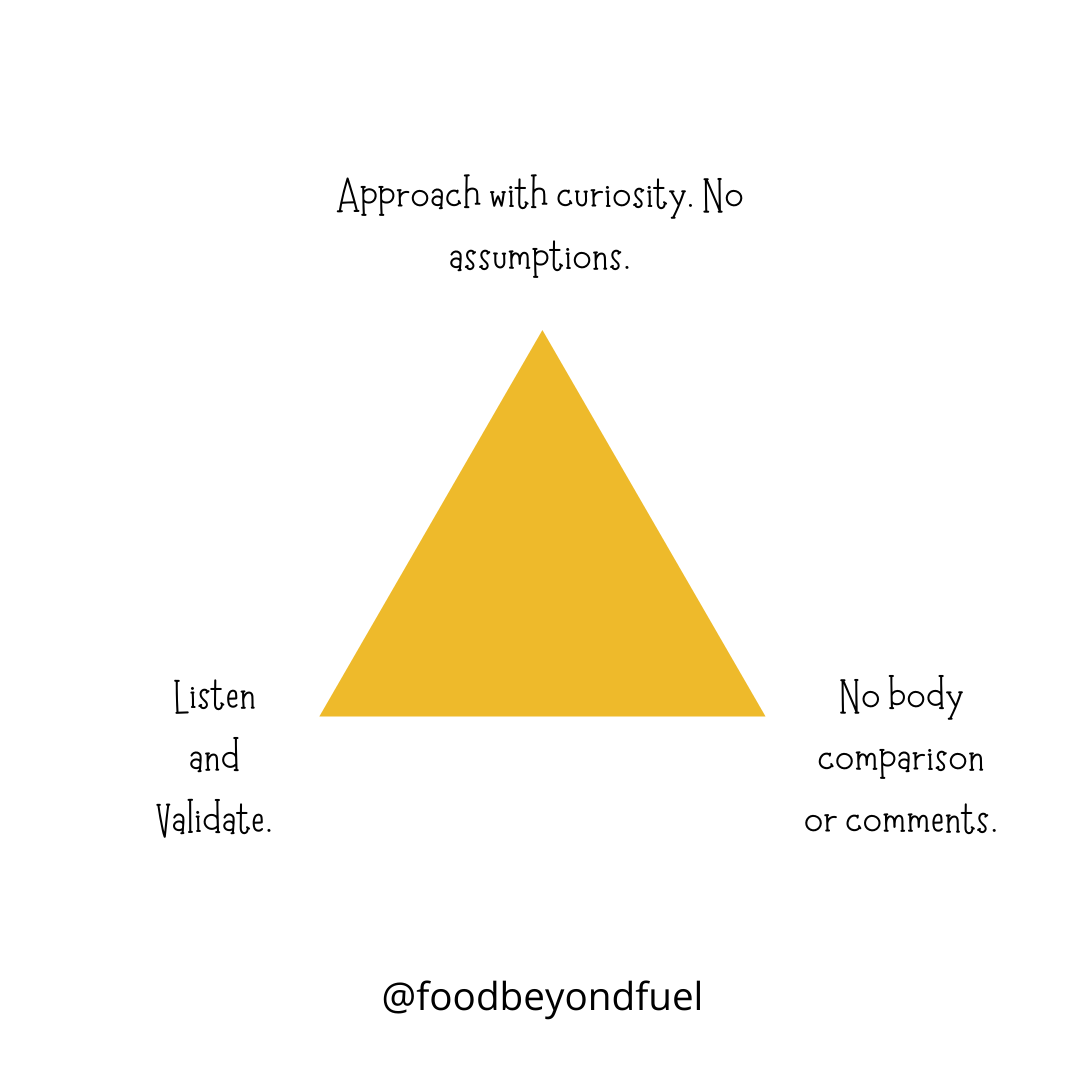3 tips for supporting someone struggling with food and body image
Supporting a family member, loved one, or friend who is struggling with an eating disorder requires a forward, yet compassionate tone. There are several ideas out there on what “recovery” means. I believe that recovery is a life long journey of becoming aware of triggers, thoughts, emotions, and actions and learning and developing new ways to respond. This response process can get “easier” or more readily “accessible” to the mind and body with time and practice and support.
To support someone, you do not need to have all the “right” things to say. You do not need to fix or make your “point” known or educate. Your imperfect, human self, needs to show up and be genuinely present.
1.Approach the person you are supporting with curiosity. Before making assumptions about how they might be feeling or what they might be thinking about the moment, food, or their body - ask. Let them know that you want to understand what it feels like to be them and acknowledge that even though you can’t be in their shoes that you care enough to try.
2.Listen and Validate. When they explain to you how they feel and what it is like to be them - fight the urge to “correct” how they are feeling or tell them why it is “untrue” or make it about you. If you are a parent, refrain from asking questions that come from a place of you needing validation for how you parented them when they were little or “what you did” wrong or right. Again, it’s not about you. Listen to what they have to say and even if you don’t get it, validate that it is ok to not be ok or to have these thoughts and feelings and struggles.
3.NO body comparison or body comments. This is a no no always, but we are going to throw in an extra no in the specific circumstance of supporting someone in recovery. Make an effort to not compare your own body or other bodies to their body. When the scale is a part of the restoration process in recovery, it can become incredibly triggering and traumatizing for the person that is struggling to have their weight and body talked about amongst family members or treatment team members in a passive, negative, or even encouraging way and can create a challenging dynamic. When in doubt - keep the weight in the hands of a trusted team member and agree to how it will be discussed and when.
If you are supporting someone in recovery keep showing up and keep asking questions. You are needed and appreciated even when you don’t feel seen or feel lost. Thank you for walking alongside those that are struggling.
For more information on supporting someone in recovery, check out the National Eating Disorder Association website. Interested in setting up a session to learn more about supporting someone through recovery? Reach out to set up a visit with Jenna at Food Beyond Fuel.

